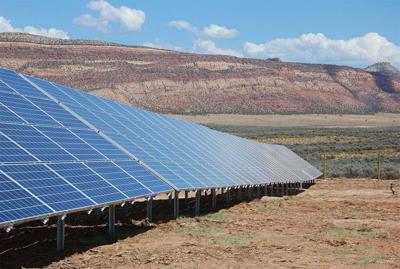Enel North America and Polaris Inc. have started operations of the Fence Post solar + storage project in Texas.
The project is supported by a 12-year VPPA, advancing Polaris’ continued efforts to reduce greenhouse gas emissions by increasing its renewable energy portfolio. Polaris will purchase the electricity and associated renewable energy certificates (RECs) generated by a 22 MW portion of Fence Post Solar, matching approximately 40% of Polaris’ U.S. electrical use.
“Polaris shares Enel’s mission to bring more clean energy onto the grid,” said Stephen Pike, head of Enel North America’s renewable energy production business, Enel Green Power North America. “Across all sectors, leaders like Polaris are stepping up to secure the economic and environmental benefits of renewable energy. Enel offers the clean and flexible solutions businesses need to advance their sustainability goals.”
Fence Post, located in Navarro County, Texas, is a 297 MW solar photovoltaic (PV) project paired with an 86 MW storage system. The solar project began operations in December of 2023, while the battery storage system is complete and undergoing final commissioning. Coho Climate Advisors advised Polaris on this VPPA and supported the company in its project selection, analysis, negotiations and deal execution.
“Partnering with Enel on this project supports Polaris’s goal of adding renewable electricity to its energy portfolio and reducing greenhouse gas emissions,” said Deborah Briggs, VP of employee health, safety, security and facilities at Polaris. “This project supports our ongoing efforts to source electricity from renewable resources and will help Polaris deliver on our commitment towards a more sustainable future.”
Enel North America, part of the Enel Group, serves more than 4,500 businesses, utilities and cities through renewable power generation, demand response, distributed energy resources, smart e-mobility solutions and services, energy trading, advisory and consulting services and more. Its installed portfolio includes more than 9.7 GW of utility-scale renewable capacity, 690 MW / 1,036 MWh of utility-scale energy storage and 97 MW / 216 MWh of distributed energy storage capacity, 4.7 GW of demand response capacity, and 193,000 electric vehicle charging ports.






